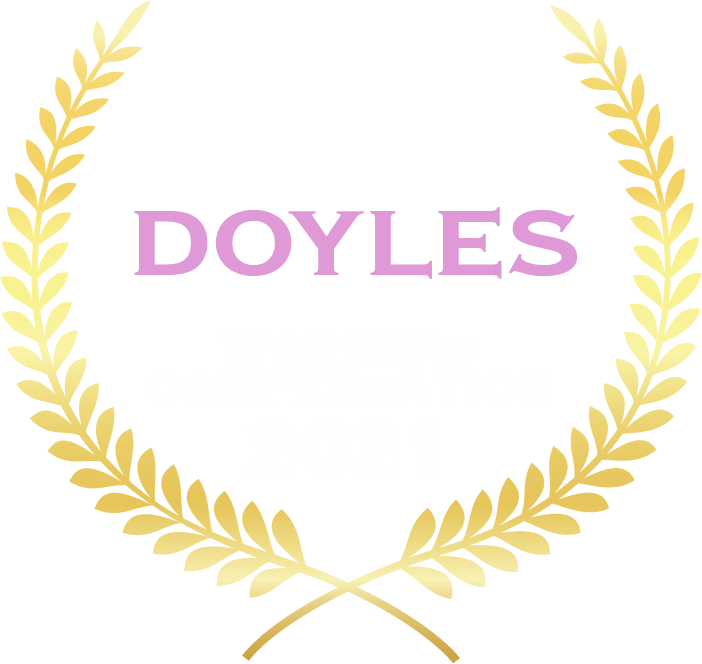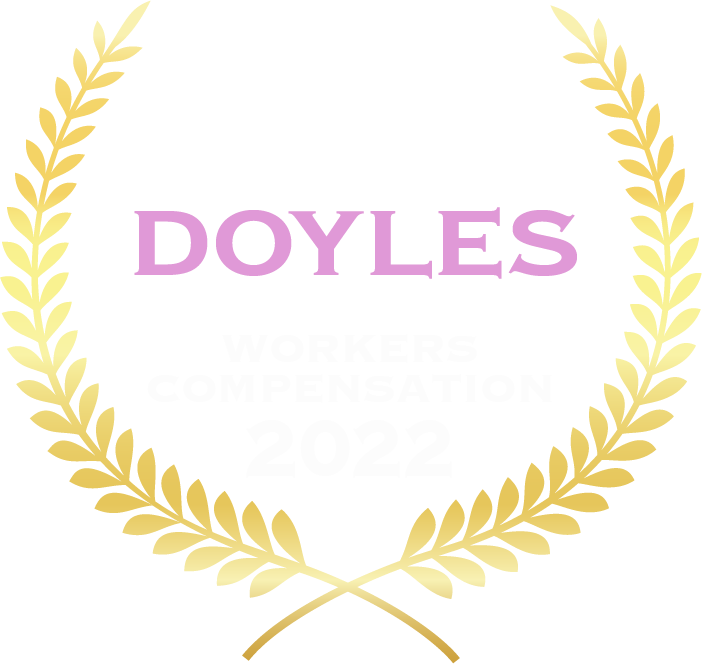Key Takeaway
After a work-related trauma, you are legally entitled to financial support to help you recover from your injury. This includes compensation for a loss of earnings / wages, cost of medical treatment services, medical expenses and rehabilitation.
In Victoria, claiming compensation for a work injury is generally referred to as a “workers compensation” or “WorkCover” claim. Workers are entitled to this support, regardless of fault.
Compensation claims can be challenging to navigate. Therefore, having an experienced workers compensation lawyer by your side is essential to help you work through the necessary legal paperwork and advise the full extent of the services available to you.
Attempting to navigate the compensation system alone can be overwhelming and may result in you missing out on your full entitlements. In addition, your lawyer will be able to advise you on your eligibility for further compensation in the form of lump sum payments for permanent impairment and damages for negligence.
We have prepared this helpful, informative workers compensation payout guide which explains everything you need to know about WorkCover and how your compensation payout is handled and calculated.
Knowledge is vital when trying to retrieve the maximum compensation you deserve.
Read on to find out more.
What is a workers compensation payout?
In Victoria, an injured worker can make a claim for no-fault workers compensation if they have a physical or psychological injury as a result of their workplace environment.
You are also eligible to make a workers compensation claim if you have a pre-existing injury or illness made worse by reason of your employment.
Workers compensation also covers you for injuries that occurred during an “authorised recess”, i.e. lunchtime or whilst travelling for work.
However, it is important to note that the TAC covers entitlements should you be injured whilst travelling to and from work, it is recommended to speak to an experienced TAC Claim Lawyers.
What are the types of workplace injury claims?
There are many types of work-related injuries, including:
- Musculoskeletal disorders
- Wounds and cuts
- Burns
- Fractures
- Head trauma
- Psychological injuries or psychiatric injuries
- Injury travelling for work
- Asbestos disease and mesothelioma
- Silicosis and silica dust exposure
What may I be entitled to for a workplace injury?
Victorians who have been injured or died at work and/or were exposed to hazardous dust (e.g. asbestos or silica dust) may be eligible to claim workers compensation for:
- Weekly payments
Weekly payments compensate you for loss of earnings and income while you are off work / working in a limited capacity.
- Medical and associated expenses
Payment of your medical expenses such as; medical bills, hospital visits, travel expenses and rehabilitation.
- Permanent Impairment benefit/payout
A lump sum workers compensation payout that covers permanent impairments resulting from the work-related injury.
- Work Injury Damages Payout
A lump sum payout for damages/injury caused by the employer’s negligence. This payment is in recognition of the loss of enjoyment of life (pain and suffering) and future economic loss (loss of earnings) resulting from your injuries. This is also known as a ‘common law claim.’
- Dependency claims
A dependency claim, also known as a ‘fatal claim’ or ‘death dependency claim’, refers to a fatality or death of a loved one on whom you were dependent due to workplace negligence.
- Total and permanent disability claim / Superannuation benefits
Benefits from your active superannuation fund policy may include; income protection, total permanent disability benefit, death benefit and trauma benefit.
If you are diagnosed with an asbestos-related injury, contact a workers compensation lawyer as soon as possible to discuss your legal options.
Strict time limits apply, so we encourage you to speak with our worker compensation claim lawyers today for information about your rights and entitlements.
Is workers compensation the same as WorkCover?
Yes, workers compensation and WorkCover are the same and refer to the same scheme. However, the legislation governing the scheme varies from state to state.
What type of employees can claim Worker Compensation?
Full-time, part-time or casual workers can claim workers compensation. You can also make a workers compensation (WorkCover) claim if you are a sub-contractor and one employer paid at least 80% of your wage.
If you are an injured Commonwealth Government employee a workers compensation claim can be made under the Federal ‘Comcare’ scheme.
Are casuals entitled to workers compensation / WorkCover?
Yes, casuals are entitled to workers compensation (WorkCover) if they suffer an injury, illness or damages by reason of their employment. You can access these entitlements regardless of fault.
What information is needed to calculate entitlements for impairment?
There are four considerations when calculating benefits for an injured worker with an impairment, these are;
- the identified injuries
- grouped injuries (where multiple injuries occur in the same workplace injury event)
- physical & psychiatric impairment levels (as assessed by the AMA4 Guide)
- date of injury
- injuries assessed at 71% or more
- compensation amounts previously paid and gradual process claims.
The legislation and guides can be challenging to interpret, so we encourage you to speak with one of our specialist workers compensation lawyers to learn how the nature of / circumstances surrounding your injury may affect your entitlements in an impairment benefit lump sum claim.
How much do I get paid on Workers compensation (WorkCover)?
How much workers compensation (WorkCover) you are entitled to depend on many factors, including the nature and severity of your injury, and medical evidence regarding your capacity for work. Basic entitlements for a work-injury claim enable injured workers to access weekly payments for 130 weeks and medical expenses on an ongoing basis.
The following table provides a guide (as of February 2023) to the weekly payments, lump sum payouts and type of further compensation you may be entitled to on workers compensation.
| Entitlement Period | Work capacity | Entitlement |
| First Entitlement Weeks 0-13 |
Unable to return to pre-injury work | Up to 95% of your pre-injury average weekly earnings (also known as PIAWE) (currently $2590* a week) or the maximum weekly compensation amount – whichever is less.
Entitlement is minus what you are currently earning at work. |
| Second Entitlement Weeks 14-130 |
Unable to return to pre-injury work | Up to 80% of PIAWE (currently $2590* a week) less 80% of your current earnings.
Your weekly entitlements will depend on your capacity to return to work. If your PIAWE includes any overtime or shift allowance, this drops off after 52 weeks. |
| After 130 weeks | You will need to prove that you are unable to work (no current work capacity) and this is likely to continue indefinitely | 80% of your pre-injury average weekly earnings subject to a Statutory maximum of double the Victorian average weekly earnings (currently $2590* a week). These payments can continue until retirement age. |
You can continue to receive weekly WorkCover payments if:
- The insurer has assessed your injury and incapacity to work and determined that your circumstances will likely continue indefinitely.
- You have applied for the payments to continue, which the insurer has approved.
Disclaimer: Figures are correct as of 1 July 2022. Workers’ compensation claim fees are subject to change at any time. Figures for TAC claims change annually. The maximum weekly compensation amount is capped and indexed in April and October each year. Compensation payouts for injuries may vary depending on various factors.
Contact our Workcover lawyers today to discuss what compensation amount you may be entitled to.
In exceptional circumstances, WorkSafe may deduct an amount that the worker would have been capable of earning if they had returned to work.
What is the maximum payout for workers compensation in Victoria?
Economic loss
The maximum payout for economic loss in a workers compensation claim in Victoria is three times your average weekly earnings as of the date the claim of damages is accepted.
Non-economic loss
The maximum payout for non-economic loss (i.e. the loss of enjoyment of life you experience as a result of your injuries) in a workers compensation claim in Victoria is capped to a statutory amount indexed on 1 July each year. For the financial year 2021-2022, the maximum amount is $644,640.16.
Gratuitous Attendant Care Services
The amount of damages that may be awarded where gratuitous attendant care services (i.e. a person who voluntarily works to attend to your needs as a result of the injury) are required varies depending on whether these services are needed more or less than 40 hours per week.
Loss of capacity to provide gratuitous care to claimant’s dependants
Where the court is satisfied that you, a claimant, would have provided gratuitous care to your dependant(s), you may be eligible for an award of damages. The amount will vary based on whether these services are required for more or less than 40 hours per week.
How long can you claim workers compensation (WorkCover)?
In most cases, you can claim no-fault workers compensation benefits for 130 weeks.
The Insurer will determine your entitlement to weekly payments after this period.
Can I continue to get weekly payments after the 130 weeks?
Workers with a current work capacity (CWC) may apply to the Insurer at any time for weekly payments to continue after 130 weeks.
The process is described in Process for application after the second entitlement period.
Payments may continue depending on the level of impairment you have due to your injury and the likelihood of recovery.
After deciding your ongoing entitlement, the Insurer will regularly review your claim.
What information should be provided to the Insurer?
The Insurer requires regular, clear and written information about:
- Hours worked each week
- Current weekly earnings
- Certificates of Capacity.
Why does my information need to be assessed?
Your information needs to be assessed to determine if you can continue to have an entitlement to weekly payments.
What if the information is not provided?
If the information is not received, the Insurer should contact the worker or their representative and advise them that weekly payments cannot be calculated until the required information is provided.
Your payments may be terminated if the information is still not received within a reasonable timeframe.
What if there is a change to my work or medical circumstances?
If the information provided indicates that there has been a change in your work or medical circumstances, a review will need to be conducted to determine your ongoing entitlements.
See: Terminate weekly payments after second entitlement period
How often is this reviewed?
Reviews should be conducted at least every six months to determine your capacity for work and eligibility to continue to receive workers compensation benefits. The assessments will include a vocational assessment and medical assessment by your treating practitioner and an independent medical examiner.
What will be the outcome of the 6-month review?
If the review indicates that you have, and are likely to continue to have, no capacity to increase your work hours or take on additional duties, a further review should be conducted at either:
- six months from the date of the previous review or
- at a date determined by the Insurer to be more appropriate.
If the review indicates that you have the capacity to increase hours – see Terminate weekly payments after second entitlement period.
How long will I continue to receive workers compensation payments?
130 weeks as long as you can demonstrate that you are unable to return to your pre-injury employment. In order to receive payments beyond this period, you must demonstrate that you have no current work capacity on an indefinite basis. You may be entitled to receive weekly payments until retirement age.
Can you get workers compensation for life in Victoria?
You can get workers compensation for up to 130 weeks. If you have no capacity for work which is likely to continue indefinitely, then your weekly payments can continue to be paid will be paid at the rate of 80% of your pre-injury weekly earnings.
Can I claim my superannuation benefits whilst receiving workers compensation (WorkCover) payments?
Yes, you can claim superannuation benefits whilst receiving WorkCover payments. If you have taken out income protection as part of your superannuation policy, you may be able to make a claim. You may also be entitled to a Total and Permanent Disability (TPD) or Permanent Incapacity claim within your respective superannuation scheme.
Does workers compensation / WorkCover cover you to and from work?
No, workers compensation/ WorkCover in Victoria does not cover you for travel to and from work. This is covered by TAC. However, you may be covered if your injury was caused on a journey undertaken as part of completing your work duties.
Am I entitled to workers compensation / WorkCover if I injured myself interstate?
Yes, you are entitled to workers compensation / WorkCover benefits if you injure yourself interstate and your employer’s primary place of business is in Victoria.
Your claim will entitle you to “statutory benefits” of weekly payments and medical and like expenses. If you have a permanent impairment, you may be eligible to claim a “lump sum” payment. Where negligence was involved, you may also be able to claim a lump sum “damages” payment. However, whether you can access this payment may be governed by the state where you injured yourself.
We encourage you to speak with a workers compensation claim lawyer to discuss your specific circumstances as soon as possible.
Does workers compensation / WorkCover cover stress leave?
Yes, it is possible to claim workers compensation for stress leave if:
- You have been diagnosed with a psychological injury as a result of workplace stress.
- Your employer has not taken reasonable actions to help reduce stress by addressing your issues.
- You can demonstrate how your employer has breached their duty of care.
- Your mental illness or stress-related injuries have met the required threshold (as determined by the AMA4 Guides) of a permanent impairment
Receiving workers compensation for stress leave can be challenging to prove, and Insurers often deny psychological injury claims.
Below provides valuable information on how Victorian workers who suffer from a mental injury can access early treatment and support, where you can go for support, and how to find out further information.
A specialist workers compensation lawyer can provide legal advice about your individual circumstances and situation.
Contact our workers compensation claim team today. Maxiom Injury Lawyers can navigate all the obstacles to get you the compensation you deserve. We are proud to have taken on and won complex cases and are committed to keeping legal fees low to maximise the compensation you receive.
Workers compensation lump sum settlements in Victoria
Lump sum workers compensation payments for permanent impairment
You may be entitled to a lump sum payment if you have sustained permanent damage. Lump sum payments or “impairment benefits” will be paid on top of the weekly provisional payment amounts. Seeking further compensation for negligence in the form of ’damages’ settlements must be made after the permanent impairment payout.
Lump sum workers compensation is determined by negotiations with the Insurer. We strongly recommend contacting a specialist compensation lawyer who can liaise with the insurer on your behalf. Call our worker compensation experts today.
Our team at Maxiom Injury Lawyers are passionate advocates of social justice. We fight relentlessly to ensure that our clients receive their full legal entitlements to recover from the loss they have suffered. Working with specialised Workcover experts, you can obtain financial support to pay for the treatment or rehabilitation you need to recover from your injury.
Can I get a lump sum workers compensation payout for my workplace injury?
Yes, you can get a lump sum workers compensation payout for your workplace injury if you have suffered a permanent injury. In addition, if your injury is the result of your employer’s negligence, you may also be able to sue for “damages” (loss of enjoyment of life and economic loss).
What is a WorkCover damages claim in VIC?
If you have been injured at work, and that injury is caused due to your employer’s or another party’s fault or negligence, you are eligible to make a claim for ‘damages’. This refers to the loss of enjoyment of life (pain and suffering) and economic loss (future earnings) you have incurred due to your injury.
Can I claim a work injury damages lump sum?
Yes, if your employer is at fault for your work injury, you may make a claim for a “damages payout”. This is in recognition of the loss of enjoyment of life (pain and suffering) and economic loss (future earnings) you have incurred as a result of your injury.
What are the types of workers compensation injury lump sum payments?
There are two types of workplace injury lump sum payments:
What is a permanent impairment payout?
A permanent impairment payout, also known as an impairment benefits claim, is the payment of a lump sum to cover the financial costs associated with recovering from your permanent injury from a work-related injury or illness.
You can make a claim for permanent impairment compensation when your injury is said to have ‘stabilised’, is permanent and meets the impairment threshold. This is at least 12 months from the date of your injury and provided that your Doctors confirm that further treatment will not change your condition.
The claims process can take up to four months (120 days), during which time you will be examined by an Independent Medical Examiner who will assess your impairment level against injury thresholds.
What types of damages are awarded to a claimant?
Under the Workplace Injury Rehabilitation and Compensation Act 2013 (Vic), claimants may be entitled to the following types of damages:
Economic loss
This is in recognition of the past and/or future loss of earnings, including superannuation.
Non-economic loss (also known as ‘general damages’ or ‘pain and suffering damages’)
This is in recognition of the loss of enjoyment of life you expect to experience as a result of your injury.
What are the impairment threshold and caps for a work injury claim
The impairment thresholds for a work injury claim are as follows:
| Type of damages | Threshold | Caps |
| Economic loss | Past and/or future loss of total earnings deriving from the loss of the claimant’s earning capacity. This can be physical or mental deprivation or impairment. | The maximum amount of damages that may be awarded for each week of lost earnings is three times the average weekly earnings as of the date damages are awarded. |
| Non-economic loss | To recover damages for pain and suffering (non-economic loss), the claimant must establish that they have sustained a ‘significant injury’.
Certain types of injuries are deemed ‘significant’ without requiring further assessment:
|
The maximum amount of damages awarded for non-economic loss (pain and suffering) is capped to a statutory amount indexed on 1 July each year. For the financial year 2021-2022, the maximum amount is $644,640.16 |
Thresholds act as a ‘gateway’ that a claimant must satisfy before they may be awarded damages for certain types of loss under the Wrongs Act.
Some types of claims are excluded from the operation of the caps and thresholds, including claims where the fault concerned is or relates to an intentional act done with intent to cause death or injury, or that is sexual assault or other sexual misconduct.
What is a work injury damages payout?
A work injury damages payout, also known as a common law claim, is a lump sum payment to cover pain and suffering and economic loss.
In Victoria, work injury damages are based on past and future income loss and loss of earning capacity due to injuries caused by employers’ negligence.
Work Injury Damages/ Common Law claims in Victoria
What is a common law/ work injury damages claim?
A common law claim or workers injury damages claim is made where you have been injured through the negligence of your employer or third party. A work injury damages or common law claim can only be made 18 months after your injury or after your impairment benefits claim has been finalised.
Once you have claimed your workers injury damages payout, you will no longer be entitled to workers compensation benefits associated with the injury (such as weekly payments or medical expenses, i.e. rehabilitation). You may also be required to repay the past weekly repayments from the settlement amount.
How much can I get for Common law payouts in Victoria?
The minimum and maximum amounts for common law payout in Victoria for 2022/2023 are:
- Pain and suffering – (WIRC Act) threshold $65,120
- Pain and suffering – (WIRC Act) maximum $660,970
- Pecuniary loss – WIRC Act threshold $67,430
- Pecuniary loss – WIRC Act maximum $1,518,180
Common law claims consider the impact an injury has on a person’s life and compensates them accordingly. There are two types of common law ”damages” which can be claimed:
- Pain and suffering only, without any loss of earnings component.
- Pain and suffering and economic loss.
Disclaimer: Figures are correct as of 15/13/2022. Common Law Payout fees are subject to change at any time. Payouts for injuries may vary depending on various factors, which can affect the payout at the time of delivery. Contact us today to discuss what compensation amount you may be entitled to.
How do I claim work injury damages?
To claim work injury damages, you must first make a workers compensation claim.
To commence arbitration (see – what is arbitration [hyperlink within text]) for a workers compensation dispute, we recommend you visit the Workplace Injury Commission Website, review their Arbitration fact sheet and complete the Referral for Conciliation or Arbitration form. In addition, you will need to submit your Genuine Dispute Certificate (issued at conciliation).
To claim work injury damages in Victoria, it is best practice to work with a personal injury lawyer to ensure you get the maximum entitlements. You will need to collect the following information:
- Details of your impairment and the nature of your injury.
- How you suffered the injury or the probable cause.
- Employment history of where the injury took place.
- Your medical history detailing any previous injury or conditions that may have contributed to the impairment.
- Any previous compensation concerning prior injuries or conditions.
- Details of the employer’s negligence and how they breached their duty of care.
- Witness statements
- A medical report from an independent medical examiner.
How long do I have to submit my workers compensation injury claim in Melbourne?
You need to submit your workers compensation injury claim form to your employer or directly to WorkSafe within 30 days of becoming aware of your injury or illness. This time limit may be extended where WorkSafe or the insurer are satisfied that it was not reasonably practicable to lodge within 30 days.
The insurer will provide their decision within 28 days.
If you have been exposed to asbestos, you must make a workers compensation claim within three years from when you first become aware of the injury caused by your employer or the manufacturer of products you have been exposed to.
A common law claim for your pain and suffering and loss of income must be lodged within six years of the date of your injury.
Workers compensation (Workcover) claims in Melbourne have strict time limits that must be adhered to. However, there are circumstances where an injured Victorian can lodge a claim out of time. We recommend speaking with one of our workers compensation claim lawyers as soon as possible to get your claim started and to discuss whether you may be eligible to make a claim “out of time”.
When should I make my asbestos or dust disease worker compensation claim?
You should make your worker compensation claim for a diagnosed asbestos or dust disease (I.e. mesothelioma, asbestos disease, silicosis) within three years of when you first became aware that you’ve suffered an injury caused by your employer or the manufacturer of the products you have been exposed to.
We recommend speaking with our mesothelioma lawyers as soon as possible after an asbestos disease diagnosis to ensure you receive your full entitlements.
Will I have to go to court to get work injury damages?
Yes, you will have to go to court to get work injury damages if you disagree with the Insurer’s settlement offer and wish to start court proceedings or mediation.
Court proceedings for workers compensation claims must begin within three years of your injury unless you have mitigating circumstances where the time limit does not apply.
Before starting court proceedings or mediation, you must submit evidence and a statement detailing the claim to your employer or the Insurers. This is called an affidavit.
What happens if my claim is rejected?
If your claim is rejected by the Insurer, you have two main options available to you. You can ask the WorkCover insurer to review the decision or proceed to conciliation.
At Maxiom Injury Lawyers, we recommend proceeding to conciliation. However, in our experience, the Insurer rarely changes their decision when asked to review.
Before electing to go down one of these roads, you should seek legal advice to ensure there is merit in proceeding further.
What is Conciliation?
Conciliation is a free and informal avenue for injured workers to challenge an Insurer’s decision. Workers injured on or after 1 September 2022 will have access to the new arbitration service.
What is Arbitration?
When conciliation is unsuccessful in resolving a dispute, the Conciliation Officer issues a ‘Genuine Dispute Certificate’. This enables an injured worker to take the dispute to Court or have their matter heard before an Independent Arbitration Officer. There will be an evidence-based hearing and a final decision made.
You can find out more about the new Arbitration service here.
We strongly recommend obtaining legal advice before referring a dispute to Arbitration. We have an experienced team of WorkCover lawyers and Personal Injury Law Accredited Specialists who can advise you on all aspects of your entitlements.
Can I apply for Arbitration?
Yes, you can apply for Arbitration for your personal injury claim if your dispute has not been resolved and a Genuine Dispute Certificate has been issued. According to the Workplace Injury Commission, you are entitled to arbitration if:
- the date of your injury is on or after September 1, 2022;
- you have a Genuine Dispute Certificate issued at conciliation; and
- your dispute is related to one or more of the following:
- Weekly payments
- Medical and like expenses
- Superannuation contributions
- Interest on an outstanding amount.
How do I get an arbitration for a personal injury dispute started?
To commence arbitration for a personal injury dispute, we recommend you visit the Workplace Injury Commission Website, review their Arbitration fact sheet and download the correct forms. To get started, complete this Referral for Arbitration form and provide your Genuine Dispute Certificate (issued at conciliation).
What is the Workplace Injury Commission?
Workplace Injury Commission (previously the Accident Compensation Conciliation Service) helps support injured Victorian workers to claim compensation, recover from an injury, and return to the workforce. The Commission provides fair, impartial services and advice to resolve disputes quickly and efficiently to achieve the best outcome.
Can I make a workers compensation claim for the death of a family member due to a workplace injury?
Yes, you can make a workers compensation claim for the death of a family member due to a workplace injury. This is called a dependency claim. Generally, there are three categories of ‘dependants’ eligible to make a dependency claim:
- Dependent partner – A partner who was wholly or mainly dependent on the deceased’s earnings. A partner who resided with the deceased at the time of death is deemed a dependant.
- Partial dependant partner – A partner who was to any extent dependent on the deceased’s earnings.
- Dependent child – A child under 16 that was dependent on the deceased (including an orphan child or child born after the death of the deceased).
Or 25 and under that was a full-time student or apprentice that was dependent on the deceased (including an orphan child or child born after the death of the deceased). - Dependents may be other family members or non-family members.
There are a number of entitlements that you can pursue as a dependant where you have lost a loved one as a result of a workplace injury. These include a weekly pension, funeral expenses, family counselling, and a lump sum payment of compensation.
You may also make a common law workers compensation claim if the death was due to the fault of the employer or any other person. This is in recognition of past and future loss of financial dependency and services.
You may also be entitled to make a claim of compensation for “nervous shock” to provide financial support for pain and suffering, medical and psychological treatment, and loss of income.
Are there time limits to making my claim?
Yes. You have two years from the date of death to lodge a dependency claim. You have six years to make a “damages” claim for financial dependency.
Can I make a workers compensation claim for the death of a loved one due to an asbestos or dust disease-related workplace injury?
Yes, you can make an asbestos or dust disease-related workers compensation claim for a loved one if you can show that the manufacturer or employer was responsible for their injury and death.
What can I claim for the death of a loved one due to asbestos-related workplace injury?
You can make a workers compensation claim for the death of a loved one due to asbestos-related workplace injury to cover for the following:
- The cost of burial or cremation.
- Family counselling services.
- Medical and associated treatment between the date of your loved one’s injury and death.
- A weekly pension and a substantial lump sum payment.
- Common law damages (in some cases).
How much will I get for my workers compensation settlement?
How much workers compensation settlement you may be entitled to depends on several considerations, such as;
- Your personal circumstances
- The nature and severity of your injury
- Any other individual information that factors into the final settlement decision.
How you negotiate with an insurer affects the settlement outcome and how much you can get.
Given that workers compensation settlements are influenced during negotiations, we strongly recommend using No Win No Fee lawyers to assist you in obtaining the maximum amount of compensation.
Contact us today. Maxiom Injury Lawyers is proud to have taken on and won complex cases. We will fight hard to negotiate on your behalf and are committed to keeping legal fees low to maximise the compensation you receive.
What is the average payout for compensation?
The average workers compensation payout ranges from $6,000 to $28,000, according to the Australian workers compensation statistics reports for 2020-2021 . However, the average payout depends on the type of workers compensation claim and the industry you work in.
The report shows that the Food and Accommodation industry has the lowest average payout, whereas the Mining industry has the highest average.
Download the Australian workers compensation Statistics 2020 – 2021 or visit the Safe Work Australia government website for more information.
Disclaimer: Figures are correct as of 15/13/2022. Workers compensation claim fees are subject to change at any time. Compensation payouts for injuries may vary depending on various factors, which can affect the payout at the time of delivery. For current figures, visit the work safe Australia website or contact us today to discuss what compensation amount you may be entitled to.
How are the compensation settlements determined?
Compensation settlements are determined and calculated by the various factors, such as
- The extent of your injury
- The nature of your injury
- Loss of income due to the injury
- The impact of the injury on future earnings
- Medical expenses incurred due to damage.
Based on this information, the insurer will assess your entitlement and put forward a compensation settlement payout amount. If you are unhappy with this proposed settlement amount, we recommend speaking with a specialist workers compensation lawyer to help you maximise your entitlements.
How do I prove my injuries?
Once you become injured / aware of your injury, it is vital that you seek medical attention to begin documenting your injury history.
Your doctor or medical professional will be able to supply you with the supporting documents and medical evidence you need to prove your injury and the validity of your workers compensation claim. Medical evidence you require for your work injury compensation claim includes:
- Diagnostic reports
- Certificate of capacity (how the injury has affected your ability to work)
What proof do I need to get asbestos or dust workers compensation?
To make a successful workers compensation claim for an asbestos injury or dust disease, you need to prove that it’s more probable than not that your employer or a manufacturer breached their duty of care and that this breach made a material contribution to the cause of your injury.
The extent, duration, and intensity of the asbestos exposure are examined to determine this.
Our asbestos lawyers can help determine who the responsible party is for your injuries and lodge a claim on your behalf as soon as possible.
Do all workers compensation cases end in a settlement?
No, not all workers compensation cases end in a settlement. Your workers compensation can end in a settlement if:
- You successfully negotiate with the Insurer to settle your claim as a lump sum payout.
- You successfully establish that your injury resulted from the negligence of your employer or a third party, and you are awarded a damages settlement.
The workers compensation payout is your full entitlement under the Workplace Injury, Rehabilitation and Compensation (WIRC) Act 2013 . It is the complete and final settlement amount. Your settlement will define when your medical and weekly payments end.
What if I am unhappy with the final workers compensation claim decision and wish to dispute it?
If you disagree with the Insurer’s decision in your workers compensation claim and wish to dispute the decision, you can do so by filing an Application for Conciliation . The process is free and informal.
We also recommend contacting a personal injury lawyer specialised in workers compensation claims to discuss the Insurer’s decision.
At Maxiom Injury Lawyers, we can ensure that you receive your full entitlements and the maximum compensation you deserve.
What is Accident Compensation Conciliation Service (ACCS)?
Accident Compensation Conciliation Service (ACCS) is a part of the Victorian Workers Compensation Scheme that provides free conciliation services to injured workers.
Starting September 1, 2022, ACCS has been replaced with the ‘Workplace Injury Commission’.
Workers injured on or after 1 September 2022 will have access to the new arbitration service.
What is Arbitration?
Arbitration is a new service available to workers with injuries sustained at work on or after 1 September 2022. It will provide a final decision for WorkCover (workers compensation) disputes that could not be resolved through conciliation.
Arbitration was established as an outcome of the Victorian Ombudsman’s 2019 report WorkSafe 2: Follow-up investigation into the management of complex workers compensation claims to improve the dispute resolution process.
When conciliation is unsuccessful in resolving a dispute, the Conciliation Officer issues a ‘Genuine Dispute Certificate’. The Genuine Dispute Certificate previously only entitled the worker to issue a case in the Magistrates’ Court to take the dispute further. The entitlement to go to Court still remains, but there is also another option available.
The new Arbitration process allows the worker to have their matter heard before an Independent Arbitration Officer. There will be an evidence-based hearing and a final decision made.
We strongly recommend obtaining legal advice before referring a dispute to Arbitration. Maxiom Injury Lawyers has an experienced team of Work Compensation Claim lawyers and Personal Injury Law Accredited Specialists who can advise you on all aspects of your entitlements.
Can I apply for Arbitration?
Yes, you can apply for Arbitration for your worker compensation claim if your dispute has not been resolved and a Genuine Dispute Certificate has been issued.
According to the Workplace Injury Commission, you are entitled to arbitration if:
- The date of your injury is on or after September 1, 2022.
- You have a Genuine Dispute Certificate issued at conciliation.
- Your dispute is related to one or more of the following:
- Weekly payments.
- Medical and like expenses.
- Superannuation contributions.
- Interest on an outstanding amount.
How do I get an arbitration for a worker compensation claim dispute started?
To commence arbitration for a workers compensation dispute, we recommend you visit the Workplace Injury Commission Website, review their Arbitration fact sheet, then complete the Referral for Arbitration form and provide your Genuine Dispute Certificate (issued at conciliation).
How do I get the most out of my compensation payout?
An employer’s Insurer will try their hardest to pay the least amount of compensation possible.
To get the most out of your compensation claim, your legal claim must demonstrate that your injury occurred as a result of your workplace environment.
An injury compensation claim can be made without the guidance and assistance of a lawyer. However, it is not recommended.
If you sustain an injury at work, contact one of our workcover lawyers as soon as possible to help you gather all the documentation and materials required to ensure you receive the full benefits you are rightfully entitled to.
If it is found that your injury occurred through negligence, your lawyer will be best placed to ensure you receive the maximum compensation you need to help you recover.
How do you win a workers compensation claim in Melbourne?
There are five recommended steps our Melbourne Workers Compensation Lawyers suggest you take for a successful workers compensation and to ensure you achieve the maximum compensation you deserve.
- Keep evidence. This includes photos, witness details, and every person involved during the process, including medical practitioners. It is better to have the information and not need it than need it and not be able to obtain it. So make sure you collect all the information, write it down, keep it in a safe, accessible space and get advice on how and when to use these details.
- Obtain the best medical care and all the correct medical proof you need from a registered medical practitioner. Keep all information, including medical records, medical reports, receipts, and travel expenses. Ensure these are ready and on hand.
- Don’t rush into a settlement. We understand wanting the process to be over as quickly and stress-free as possible, but this will not always result in the best outcome for you.
- Be as detailed as you need to be with your lawyer. No detail or information is too much. An expert workers compensation lawyer will take all the details and information you have provided and let you know if any more information is required.
Most importantly – Get legal advice!
The benefits of working with a personal injury lawyer cannot be over-emphasised. Your lawyer has an in-depth understanding of the legal processes and tactics employed by insurance companies. Their role is to advise you on how to fill out the necessary paperwork to maximise your chances of success, alert you to the required evidence you will need, and help you understand what compensation you might be entitled to.
Talk to a no-win no-fee lawyer and provide them with all the information and details required. No question, concern, or worry is too much. An experienced workers compensation lawyer will have dealt with similar cases and can help advise you on everything you need. Ask questions and get to know them personally. This is your workers compensation claim, and you are entitled to the maximum compensation and the best legal advice to help you win your case.
To get the most out of your compensation payout and to win a workers compensation claim, you need a competitive and passionate legal representative with a high success rate who can help you navigate through the legal procedures and cut through the tape to get you the maximum compensation you deserve.
Who can help me with my workers compensation claim?
Our team at Maxiom Injury Lawyers are passionate advocates of social justice. We will fight relentlessly to ensure that our clients receive their full legal entitlements so they can concentrate on healing from their losses.
We can help you claim rightful entitlements for the following:
- Weekly payments
- Medical and associated expenses
- Permanent impairment benefit
- Damages settlement for your pain and suffering and loss of earnings
- Superannuation benefits
- Dependency claims
- Financial support to help you recover.
Why Maxiom Injury Lawyers?
In our experience, clients receive the most benefit during the legal process when they work with a lawyer who actively listens to their stories and understands their concerns about the legal process.
That’s why at Maxiom Injury Lawyers, you will be partnered with an Accredited Specialist in Personal Injury Law who is accessible when you need it and will advocate for your rights, be your voice and ensure you receive your full and fair entitlements. We are also committed to keeping legal fees low so that you receive the maximum amount of compensation.
We win complex cases.
Maxiom Injury Lawyers is proud to have taken on and won complex cases.
Find out where you stand.
We can help you navigate the various insurance schemes and provide an avenue for you to pay for the treatment or rehabilitation you need to recover from your injury.
Your Path to Recovery
The path to recovery after an injury can involve significant stress and financial hardship. At Maxiom Injury Lawyers, you will work with a dedicated lawyer who will support you through the entire claims process and help you meet your recovery goals.
Speak to our WorkCover lawyers today.
To start your path to recovery, you can contact us at any time by phone or by enquiry form. If you are not quite ready to speak to us, we also offer a Free Claims Check so you can find out if you are eligible to make a claim for your injury.
Frequently Asked Questions
What is a no-fault workers compensation scheme?
Regardless of fault, all Victorian employees are entitled to receive financial support when injured at work. In Victoria, the workers compensation scheme is known as Workcover.
Can you work after a workers compensation settlement?
Yes, you can work after a workers compensation settlement if you feel ready to do so.
Your workers compensation settlement does not prevent you from returning to work if you recover from your injuries.
How do I make a Workplace Injury claim?
To make a Workplace Injury claim, lodge a claim via your employer or via the Worksafe website.
The fastest and easiest way is to complete and submit a claim form on the Work Safe website.











